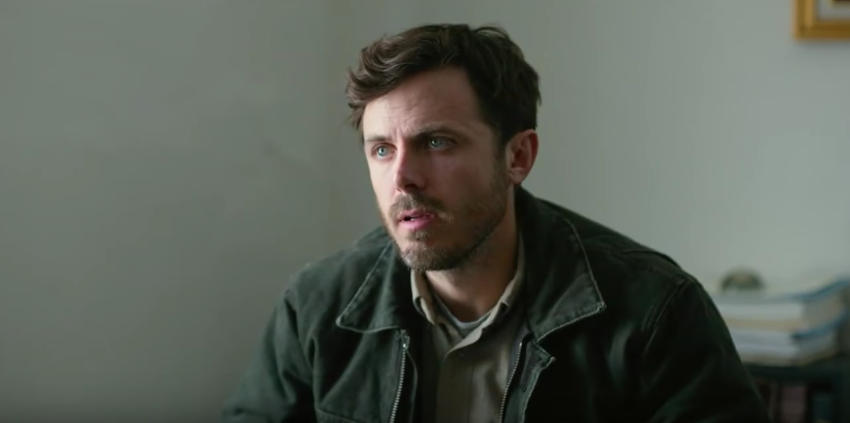The Difficulties of Door-Opening, With Casey Affleck
It’s really hard.

I don’t know if you’re going to be able to believe this, but Casey Affleck weighed in on social issues, and he did it in a narrowly focused way!
I know this because The Hollywood Reporter tweeted the following graphic today:
Casey Affleck on how Hollywood can change its race problem https://t.co/aZew9jOo7N
— @THR
I did the self-harm behavior of clicking on the article so you don’t have to, and it’s from an actors’ roundtable Affleck recently did with Jeff Bridges, Mahershala Ali, Andrew Garfield, Joseph Gordon-Levitt and Dev Patel. He made the comment in response to a question from the reporter: Are roles more limited for non-white actors?
Ali actually turns to Dev Patel (the only other P.O.C. on the panel) and says, “Take it, brother.” (Something we could all practice doing more often.) Patel speaks about typecasting within the industry, and Ali replies with his thoughts on acting in films like Moonlight versus playing roles that often weren’t written for a black actor. Great! A dialogue! Then, as if unable to sit for two seconds without weighing in, Casey Affleck jumps into the mix with the quote in that tweet. Weirdly, the interviewer immediately decides to change the subject to something the whole panel can give a G-rated answer to: Can any of you imagine giving up acting? Hm Casey!!!! I wonder what happened there!!!
As a Language Arts exercise, I would love to map Casey Affleck’s words, because that statement on its own is actually a very rich and nuanced text.
“As a group of artists, as a community, we have an obligation to try to open doors. But it’s really hard to go just from top down.”
Let’s start easy. “As a group of artists, as a community.” We can assume this means “as an industry” a.k.a. “as directors, actors, producers, etc.” a.k.a. “as a group of people with jobs traditionally and institutionally operated by and for the profit of white men.” So “as a white man.” Got it.
“We have an obligation” is actually the most straightforward part of this statement. “We” (white men) “have” (are in possession of) “an obligation” (an act or course of action to which a person is morally or legally bound; a duty or commitment). White men have a moral and legal duty.
“To try to open doors.” Okay so we’re waffling a little bit after that firm “obligation” word choice. “To try.” You have an obligation to attempt to open doors for people who do not have the power to open those doors on their own? And that’s where the obligation stops? After you feel you’ve tried to open the door? Like when you’re in the elevator and “try to” hold the door open for the person a few steps away who’d like to get on? Like when you’re walking out of the movie theater and “try to” hold onto the door long enough that it doesn’t close on the slow person behind you? How often are we really trying and failing to open doors for each other as a culture? If you are there, holding a door, and really intend for someone else to pass through it, isn’t there not much more effort required? Aren’t you, perhaps, in the one position in the world that might ensure someone else’s safe passage through the door? Hm.
“But it’s really hard.” — traditional Caucasian proverb
“To go just.” Mmm here’s a fun one. “Just.” Only. Merely. Simply. This is deflecting language. This is language you use when you’re acknowledging someone’s position as a means to pivot back toward your own point of view, where you’re comfortable. “Yes I see that you are saying something, and you have a right to say it, it’s just that I too am also saying something.” It’s a way of seeming constructive while still being fixated on your own asshole.
“From top down.” From a position of privilege. From power. “It’s really hard to go just from top down.” Is it? Difficult? Casey? Harder, say, than not being able to get work in your chosen field because of the color of your skin or your gender or any of the other myriad traits you have no control over? Is it hard for you to hold the door open when you have financial security and a voice that people listen to? Okay. Then maybe imagine approaching the same project without those resources. Would it, perhaps, also be hard? Could it, even, maybe, seem more difficult than the difficulties you’re enduring in certain ways? Great. This is not a pain competition. This is not a difficulty dick-measuring contest. Things suck for everyone. Open the goddamn door when you can and hold it that way, and maybe someday someone will do it for you when you need it. That day is not today, though. You already have the job. You have the reporter and the graphics team and the social media professional scheduling out the tweet of your face to remind people that you are alive and hirable.
And this is what you said with that platform. Here are the words you picked.
